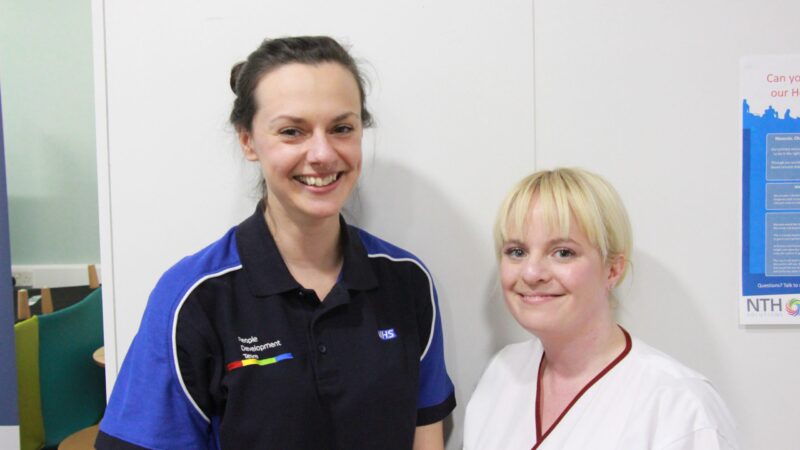
An innovative paperless symptomatic breast screening service has been implemented at North Tees.
Breast screening advanced practitioner, Tracy Hall, initiated the change as part of the Trust’s 100 Leaders programme.
Working together with a dedicated team and deputy, Tracy drove this improvement project forward to improve patient experience.
The problem was the amount of paper that travelled with a patient throughout the clinical areas, sometimes up to six sheets at a time.
It was pointless as this information could be accessed electronically, so our project’s aim was to reduce this paper waste to improve staff efficiency.
Tracy Hall, advanced practitioner in breast screening
Following months of service mapping and testing, Tracy has green light for her first phase of paperless process to begin.
Tracy’s hard work, passion and determination has not gone unnoticed. This is a fantastic example of how our staff dedicate themselves to improving patient experience at all times.
This is a great achievement for Tracy and her team; I look forward to seeing the impact paperlite will have on the breast screening department.
Rowena Dean, care group director
As well as reducing paper waste, the project aligns with the Trust’s digital agenda, aiming to make patient records paperless by 2024.
“I am so happy our hard work and stress has paid off and we are on target to have a fully paperless symptomatic process.” Tracy commented.
“If it wasn’t for 100 Leaders and team support, I would never have been able to make this happen.”
100 Leaders has given me so much confidence and awareness on quality improvement, I am extremely grateful that I received an opportunity to make real change in my Trust.
Tracy Hall, advanced practitioner in breast screening
Introducing paperlite symptomatic breast screening
Title card: Introducing paperlite symptomatic breast screening
Prior to me and Jordanne doing the 100 leaders there was quite a lot of time wasted with printing out the referrals and uploading them on to Cris.
Title card: Tracy Hall, advanced practitioner in breast screening
Title card: Jordanne McMullan, organisational development practitioner
Whereas now we’ll be able to just access that electronically using the systems that are already in place so it’s going to free up a lot of time for the admin team in the office.
It also mitigates risk as well because a lot of the time the paper had to come in and out of different rooms for the next professional to take it for their task and that’ll mitigate that, it will be on the screen.
Yes it should reduce the breaches with information governance to make sure that the paper with everybody’s medical history isn’t going around the department and also saving money on paper.